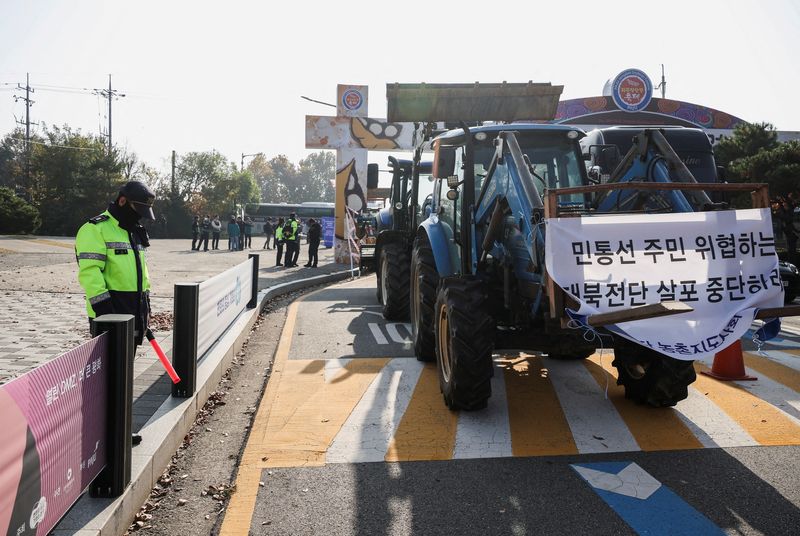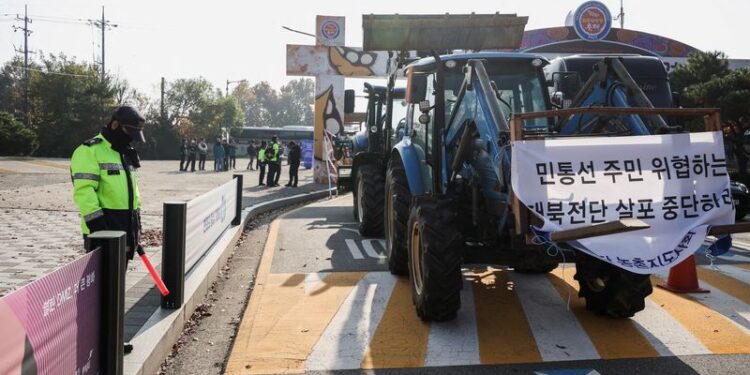By Josh Smith
SEOUL (Reuters) -North Korean state media released a white paper on Sunday accusing South Korean President Yoon Suk Yeol of exposing his country to the danger of nuclear war through his policies toward the North.
The document, compiled by North Korea’s Institute of Enemy State Studies and released by state news agency KCNA, criticised Yoon’s “reckless remarks” about war, abandoning elements of an inter-Korean agreement, engaging in nuclear war planning with the United States, and seeking closer ties with Japan and NATO.
“Its ever-worsening military moves resulted only in the paradoxical consequences of pushing (North Korea) to stockpile its nuclear weapons at an exponential rate and further develop its nuclear attack capability,” the paper said.
Yoon, a conservative, has taken a hard line on North Korea, which has forged ahead with developing its arsenal of nuclear weapons and ballistic missiles in defiance of United Nations Security Council resolutions.
His administration blames North Korea for raising tensions with weapons tests and providing military aid and troops to aid Russia’s war in Ukraine.
Pyongyang has been taking steps to sever inter-Korean ties,
redefining the South as a separate, hostile enemy state, since Kim Jong Un declared it a “primary foe” early this year and said unification was no longer possible.
North Korea blew up sections of inter-Korean roads and rail lines on its side of the heavily fortified border between the two Koreas last month, and satellite imagery shows it has since built large trenches across the former crossings.
The two Koreas are still technically at war after their 1950-53 war ended in an armistice, not a peace treaty.
The two Koreas have also clashed over balloons of trash floated since May from North Korea. Pyongyang has said the launches are a response to balloons sent by anti-regime activists in the South.
Sunday’s white paper also listed Yoon’s domestic political woes, including scandals involving his wife, which have driven his approval ratings to record lows.
Meanwhile, the United States on Sunday deployed B-1B bombers for joint aerial drills with South Korea and Japan, in response to North Korea’s recent launch of an intercontinental ballistic missile, according to South Korea’s Joint Chiefs of Staff.

The military exercise showed the three countries’ strong commitment to responding to the North’s nuclear and missile threats through cooperation, the Joint Chiefs of Staff said in a statement.
This is the second time this year that the three countries conducted joint air drills and the fourth time in 2024 that the United States deployed its strategic bombers on the Korean peninsula, the Joint Chiefs of Staff said.







